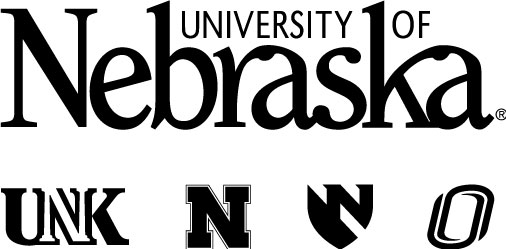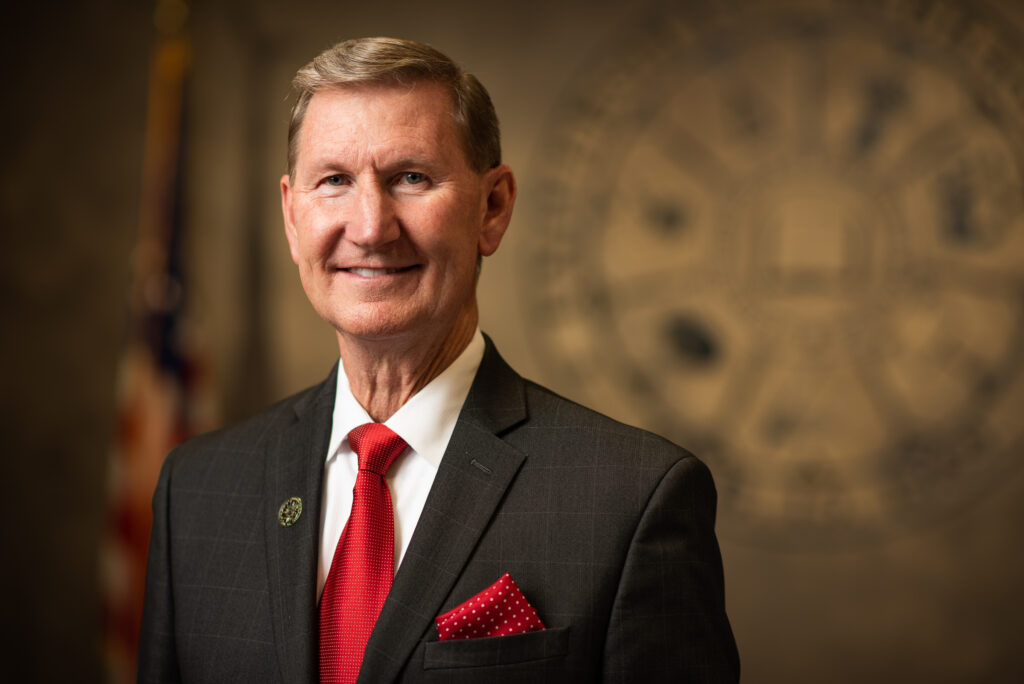
When Ted Carter took the helm as the eighth president of the University of Nebraska system on Jan. 1, 2020, he couldn’t have known that a global pandemic was on the verge of upending the lives of NU’s faculty, staff and students – not to mention the higher education industry itself.
That’s exactly what happened. So Carter – an alum and past superintendent of the U.S. Naval Academy, a Top Gun graduate and a naval flight officer with extensive overseas experience – quickly put aside his original “to-do” list and turned his focus to the unprecedented challenges at hand.
Bio Nebraska caught up with President Carter to talk about his first six months on the job, the priorities he and the chancellors are keeping in mind as they respond to COVID-19, and what the University of Nebraska is doing to make sure its teaching, research and service activities will be stronger than ever after what he calls a “transformational event” for higher education.

You’d barely settled into your new office when the University moved to remote working and learning because of COVID-19. What are your observations in terms of how the University has adapted?
All the credit belongs to our leadership teams, students, and the faculty and staff who have put students first in everything they do. It’s not easy to move 51,000 students online in a matter of weeks, or to keep our research enterprise humming when we’re working remotely. Higher education hasn’t always been known for its adaptability. But this period has brought out the best of the University of Nebraska.
We’ve stepped up with new initiatives to provide access and support for Nebraska students. Our faculty have put their expertise to work in creative ways to serve the community, like a UNL-led hand sanitizer project that’s meeting an urgent need across the state. And of course, the world-leading work that UNMC is doing to fight infectious diseases has been front and center throughout this crisis. These are challenging times, but I could not be more proud to be a Nebraskan.
The University’s research activities have a major impact on quality of life and economic growth in our state. Have you had to “hit pause” on that work in light of the crisis?
Of course remote work and social distancing requirements have required us to be flexible. But the value and impact of University research and creative activity is clearer now than ever.
Just this week, we announced that a Husker researcher is part of a national team working on a COVID-19 antibody test. Students at UNO were instrumental in developing an app that screens for coronavirus symptoms. The NU system has moved up in the world rankings for U.S. patents. That’s a signal to me that our faculty’s discoveries in engineering, medicine, agriculture and so many other areas are having real impacts on peoples’ lives. We plan to continue growing for the future.
You mentioned new initiatives to support students. What steps are the University taking to keep higher education affordable, particularly during these uncertain times?
Affordable access for students has been our North Star. The Chancellors and I wake up every day thinking about what we can do to provide our students with as much hope and predictability as we can.
We launched the Nebraska Promise, a financial aid program that will provide full tuition coverage for Nebraska students with family incomes of $60,000 or less. The Nebraska Promise is about providing opportunity to the young people of our state. Quite simply, it’s the right thing to do.
We’ve announced a two-year, across-the-board tuition freeze for 2021-22 and 2022-23. This will help students and families know exactly what they will pay in tuition for the next several years.
We’ve reduced and standardized tuition rates for our online bachelor’s degree programs – a flexible option for students who can’t be on our campuses physically.
And, we’ve declared that we will be open in the fall for in-person learning. Campus teams are working around the clock now to safely welcome students back for the “whole person” education that is so vital to their overall collegiate experience.
What’s been the impact of these steps? In mid-April, applications from first-time Nebraska students were 5 percent behind where they had been in 2019. Now, we’re 9 percent ahead of last year. That tells me our laser focus on enrollment is making a difference. Most importantly, I hope we have sent a message of care and compassion to Nebraska students and families.
What’s the guiding principle for you and the chancellors to manage this crisis in real time?
Many institutions are responding in one of three ways. Some are paralyzed in the “fog of war.” Some are waiting for more perfect information to act. And some are being decisive even in the face of imperfect information, so they emerge on the other side of this event in a position of strength.
The chancellors and I decided early on that we would be in that last category. The needs of our students, our workforce and our state are too great for us to simply hunker down. At every step, we’ve had a bias for action that I believe will serve us well.
When I think about the future, I think about new and exciting pathways for students to pursue an education. I think about evolving modes of course delivery. And I think about the growing value of a college degree in a world that will depend on highly skilled, highly adaptable leaders ready to solve the most urgent and complex challenges.
The University of Nebraska is going to meet this moment. We have hard work ahead. But everything I’ve learned about Nebraskans tells me we’re going to be a University and State that get this right.
